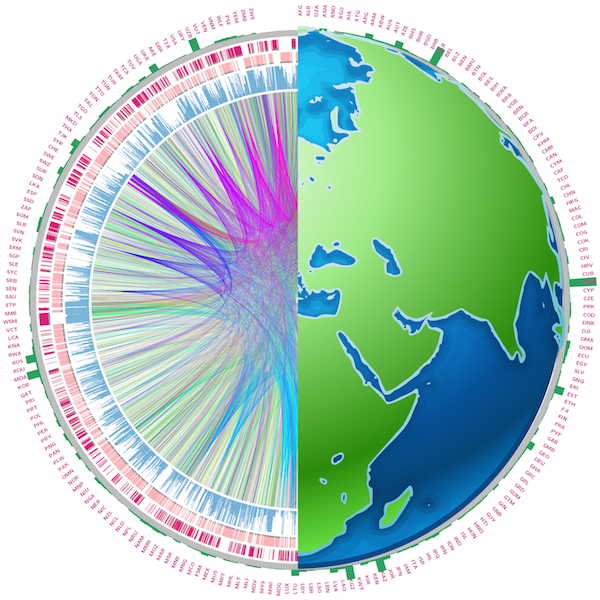Baliga Lab: A Global Map To Fight Tuberculosis
 isbscience.org/news/2015/03/31/baliga-lab-a-global-map-to-fight-tuberculosis-2/
isbscience.org/news/2015/03/31/baliga-lab-a-global-map-to-fight-tuberculosis-2/
3 Bullets:
- The disease progression of tuberculosis is extremely complex and it’s poorly understood.
- ISB and Seattle BioMed researchers have made an important step by developing a comprehensive map of gene regulation in tuberculosis.
- A resulting open-access web portal offers any scientist the ability to mine the collected data.
By ISBUSA
Tuberculosis (TB) remains a top global health threat due to its remarkable complexity in disease progression. To help understand these complexities, researchers from Institute for Systems Biology and Seattle BioMed have developed the most comprehensive map to date of gene regulation in Mycobacterium tuberculosis (MTB). It’s the first systems-scale construction of transcription factor (TF) binding sites and their regulatory target proteins in MTB. This study was published on March 31, 2015, in Nature Scientific Data.
Title: A comprehensive map of genome-wide gene regulation in Mycobacterium tuberculosis
Journal: Nature Scientific Data
Authors: Serdar Turkarslan, Eliza J. R. Peterson, Tige R. Rustad, Kyle J. Minch, David J. Reiss, Robert Morrison, Shuyi Ma, Nathan D. Price, David R. Sherman & Nitin S. Baliga
Link: Nature Scientific Data
Related research:
>Pushing the molecular switches of tuberculosis into overdrive to map interactions
>Uncovering the genetic adaptability of tuberculosis
The study involved systematic mapping of TF binding sites for more than 80 percent of all TFs in MTB genome, as well as classifying more than 9,000 changes associated with these TFs. The team also performed a comparative analysis of the two large datasets that were mapped and linked an additional 1,500 binding events to proximal gene regulation. In addition, the researchers integrated these datasets with independent regulatory network model to rigorously map networks of gene regulation in MTB.
The team developed the open-access MTB Network Portal to ensure integration of these datasets with existing data, analyses and other tools and eventual dissemination to the broader scientific community. Given the complexity of tuberculosis, this platform will provide a unified environment for integrated data mining for the larger MTB research community.






